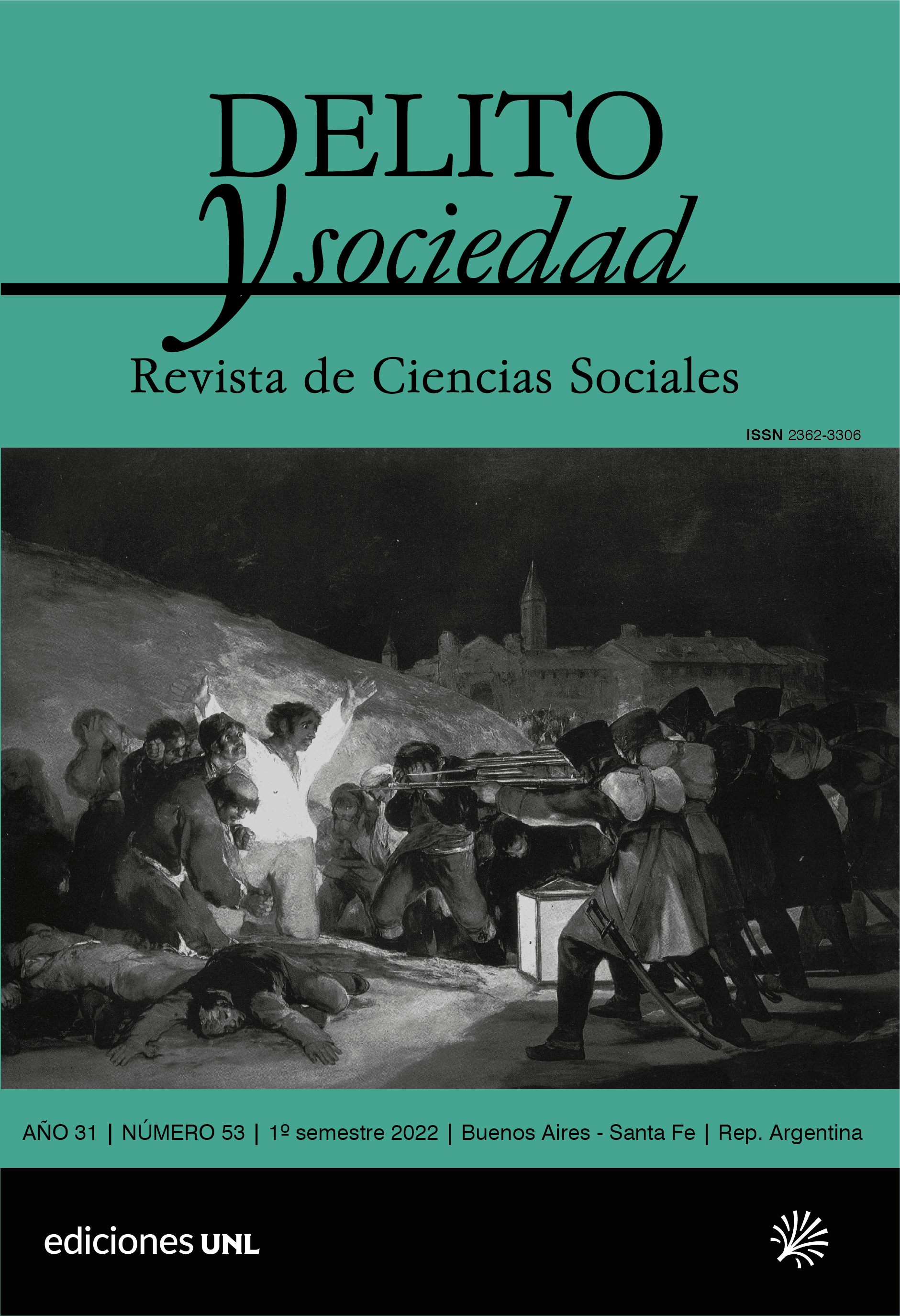«The staircase is cleaned from top to bottom, not the other way around.» The police in the framework of the juvenile criminal experience in the territory
DOI:
https://doi.org/10.14409/dys.2022.53.e0057Keywords:
Juvenile penal system, alternative measures, police, harassment, territorializationAbstract
In this article we present the different ways in which the police (re)configures the implementation of alternative measures to confinement and/or judicial prosecution (MA) in the juvenile justice system. Based on an ethnographic study carried out in a Socio-Community Center for Juvenile Criminal Responsibility (CESOC) in the suburbs of Buenos Aires between 2018 and 2019, we identified the different types of police harassment suffered by young people (mostly male) and its consequences. We highlight the violence and the aggravation of legal cases, but at the same time we reveal some more subtle and equally harmful consequences that affect young people in their daily lives and in the ways in which the MA develops. We also point out the implications of the territorialization of the MA, which suppose a social, cultural, affective and geographical approach of the state workers towards the young that allows qualifying the «police truths» in relation to their «dangerousness». Although on the one hand it is observed that most of the CESOC actors question police actions, they show a certain fatalism regarding the possibilities of action and their interventions focus on young people adapting their behavior to avoid police harassment.







